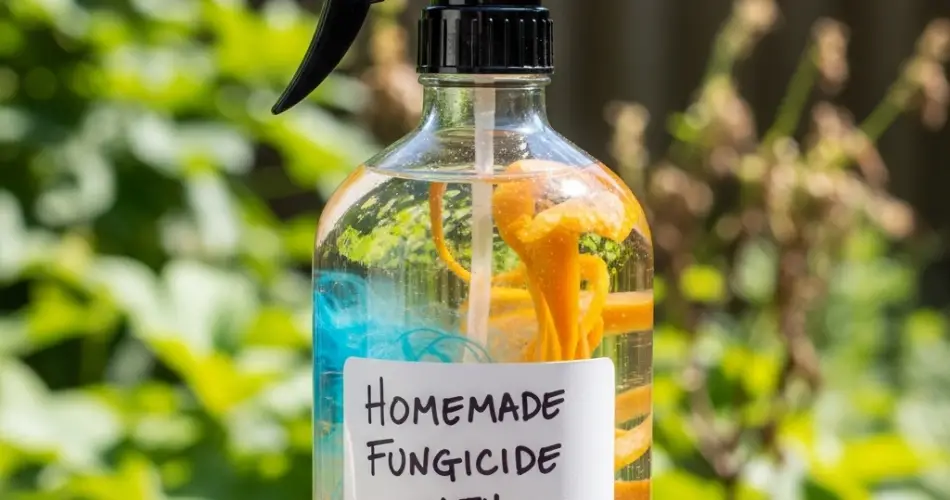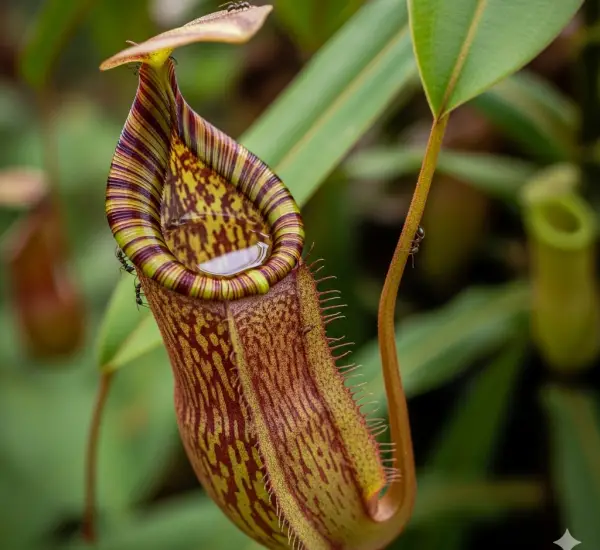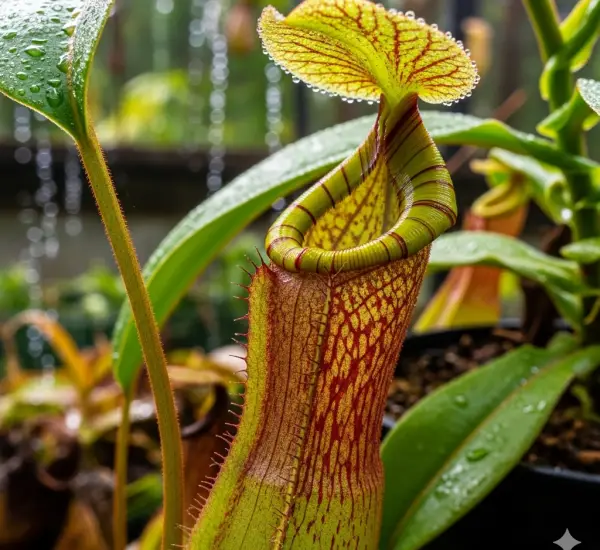Fungal infections are one of the most common issues gardeners face when caring for their plants. Whether you’re tending to vegetables, flowers, or houseplants, fungus can appear quickly—especially in warm, humid conditions—and spread even faster if left untreated. The good news is that you don’t always need expensive commercial products to combat these issues. A simple household ingredient like vinegar can serve as a powerful natural fungicide, helping to protect your plants without resorting to harsh chemicals.
Why Fungus Is a Problem for Plants
Fungi are microscopic organisms that thrive in moisture. They can infect leaves, stems, roots, and even fruits, causing symptoms like:
-
Yellowing or browning of leaves
-
White powdery spots (powdery mildew)
-
Leaf spots
-
Black or brown lesions on stems
-
Wilting despite proper watering
Common plant fungi include powdery mildew, downy mildew, black spot, rust, and botrytis (gray mold). If not treated promptly, these infections can weaken or kill plants.
Vinegar: A Natural Antifungal Agent
Vinegar, especially white distilled vinegar and apple cider vinegar, contains acetic acid, which has natural antifungal and antibacterial properties. While it’s acidic, when diluted correctly, it can help eliminate fungal spores without harming the plant.
Homemade Vinegar Fungicide Recipe
Here’s how to make an effective and safe fungicide at home using vinegar:
Ingredients:
-
1 liter of water (preferably filtered or rainwater)
-
2 tablespoons of white distilled vinegar or apple cider vinegar
-
Optional: a few drops of mild liquid soap (acts as a surfactant to help the solution stick to the leaves)
Instructions:
-
In a clean spray bottle, combine the water and vinegar.
-
Add the liquid soap if using, and shake gently to mix.
-
Spray directly onto the affected parts of the plant—leaves (both sides), stems, and surrounding soil if needed.
-
Apply early in the morning or late in the afternoon to avoid sunburn, as vinegar can make leaves more sensitive to sunlight.
-
Repeat every 3 to 4 days until the infection is gone.
Important Tips for Use
-
Test First: Always test the solution on a small area of the plant first. Wait 24 hours to see if there’s any negative reaction before treating the entire plant.
-
Avoid Overuse: Do not use this mixture more than once every few days. Overuse or high concentrations of vinegar can damage plant tissues.
-
Don’t Apply in Full Sun: Applying this solution under strong sunlight can cause leaf burn due to increased photosensitivity.
-
Apply Preventively: Even if your plants are not currently infected, using this spray occasionally can help prevent future outbreaks.
When to Use Vinegar Fungicide
-
When you notice early signs of fungal infection: white spots, powdery patches, yellowing leaves, or leaf drop.
-
After periods of heavy rain or high humidity when fungal problems are most likely to develop.
-
On susceptible plants like roses, zucchini, tomatoes, cucumbers, and squash, which are prone to mildew and blight.
What Not to Do
-
Don’t use undiluted vinegar on plants. Full-strength vinegar is too acidic and will likely burn foliage and damage roots.
-
Don’t apply during extreme heat or strong sun. This could worsen the damage.
-
Don’t mix with baking soda or hydrogen peroxide unless you understand how the interaction affects pH. Combining too many DIY remedies can lead to imbalanced formulas.
Additional Tips for Fungal Prevention
While vinegar is effective for treatment, prevention is equally important:
-
Improve air circulation by spacing plants properly.
-
Water at the base of the plant to avoid wetting leaves.
-
Remove infected leaves and dispose of them away from the garden.
-
Keep tools clean to avoid spreading spores.
-
Use mulch wisely to prevent splashing soil onto leaves.
Final Thoughts
Nature often provides us with the solutions we need—safely and affordably. Vinegar is one of those versatile, time-tested ingredients that can play a powerful role in your plant care routine. When used properly, it can help eliminate fungi, prevent future outbreaks, and reduce your reliance on synthetic fungicides. With just a bit of vinegar, water, and care, your garden can stay vibrant and healthy, free from pesky fungal threats.



